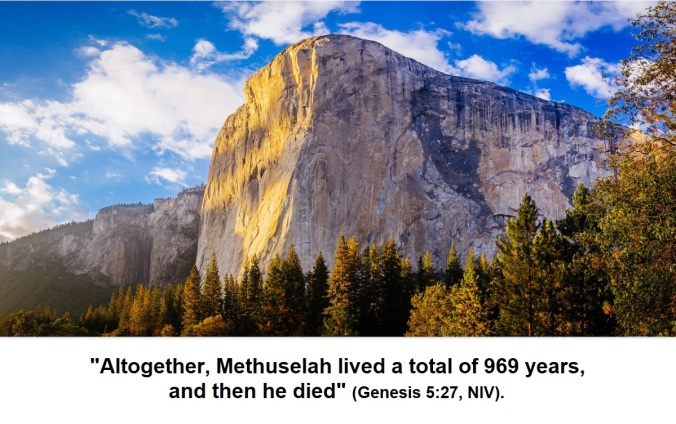“Go therefore and make disciples of all the nations…teaching them to observe all that I commanded you, and lo, I am with you always, even to the end of the age” (Matthew 28:19-20, NASB).
——————–
Contents:
1) “Try a Little Tenderness” (Larry Ray Hafley)
2) The Governor Called (Frank Himmel)
——————–

-1-
“Try a Little Tenderness”
Larry Ray Hafley
A radio station in Chicago used to play soft, gentle music. Their motto was the title of this theme. It is good advice. “Gentleness” is a fruit of the Spirit (Gal. 5:22). “And be ye kind one to another, tenderhearted” (Eph. 4:32). “Comfort the feebleminded (faint), support the weak, be patient toward all men” (1 Thess. 5:14). “Put on therefore, as the elect of God, holy and beloved, bowels of mercies, kindness (gentle tenderness), humbleness of mind, meekness, longsuffering; forbearing one another, and forgiving one another, if any man have a quarrel against any: even as Christ forgave you, so also do ye” (Col. 3:12,13). We are to walk the way of life “with all lowliness and meekness, with longsuffering, forbearing one another in love; endeavoring to keep the unity of the Spirit in the bond of peace” (Eph. 4:2,3).
The yoke of Christ is “easy,” or kind (Matt. 11:30). Paul spoke of “the meekness and gentleness of Christ” (2 Cor. 10:1), and we are to walk “even as he walked” (1 Jn. 2:6). Hence, let us “try a little tenderness.”
In The Home
Have you listened – really listened – to yourself as you talk to your mate and your children? It is easy to develop a snapping turtle response. Ever been around a frisky, feisty little dog that just wants to bark when you are around? Pressures, problems, “every day stress and strain,” can lead us to sharp, biting replies to our loved ones. It can become a habit. Everywhere, but especially in the home, “try a little tenderness.” If a soft answer turneth away wrath (Prov. 15:1), what does a harsh answer do?
The wonderful woman in Proverbs 31 possesses many valuable virtues, but none is greater than the fact that “in her tongue is the law of kindness” (v. 26). Gentle kindness fills her heart, adorns her countenance and flows from her tongue. It is the material with which man would create an angel if he could.
One’s tongue can become a razor, a sword, a club (Psa. 52:2; 57:4; Prov. 12:19). It can cut and hew and dismember a loved one. Some children and marriage companions have never been physically beaten, but they have suffered daily the harsh brutality of a demeaning, belittling tongue. The victims of a malicious mouth would gladly trade their broken hearts for black eyes and broken bones. At least broken bones will heal.
Family members are bonded in bliss by blessed words of affection, praise and thanks. Husbands and wives should speak words of appreciation and approval to one another.
Children need criticism and condemnation at times, but they also need sweet and loving words of commendation and encouraging exhortation. All of you, mother, father, children, listen to yourselves speak to one another. Is your conversation filled with negative, derogatory, cutting, complaining, whining words? Is your voice sharp, caustic, full of sarcasm and irritation? If so, you have our prayers, and your family has our sympathy.
Among Brethren
“Pleasant words,” the Bible says, “are sweet to the soul and healing to the bones” (Prov. 16:24, NASB). “The sweetness of the lips increaseth learning” (Prov. 16:21). In other words, one will listen to you more readily.
Would you gloat at a funeral? Certainly, you would not, but do we gloat and glory over a fallen brother? Do we appear to be glad when one is overtaken in a fault, or do we seek to “restore such an one in the spirit of meekness” (Gal. 6:1)? “Rejoice not when thine enemy falleth, and let not thine heart be glad when he stumbleth” (Prov. 24:17). You may feign sorrow over the fall of another, but the Lord God knows your heart (Heb. 4:13).
There is a time and place for sharp rebukes and verbal slaps in the face (Tit. 1:9-13; Gal. 2:11-14; 2 Cor. 13:10). It is not possible to wink at sin, smile at error and grin all the time (Mk. 3:5). Occasionally, whips must be fashioned and used, and seats and moneychanger’s tables must be overturned and their occupants cast out. It is not pleasant. Some object to it, except when they turn their oral guns on those who will do it. Then, they castigate the castigators and verbally thrash those who have the faith to do what must be done; namely, reprove, rebuke and exhort with all longsuffering and doctrine. But enough on that.
The other side is that there is a large amount of time and a great deal of space for one to “try a little tenderness.” “And the Lord’s bond-servant must not be quarrelsome, but be kind to all, able to teach, patient when wronged, with gentleness correcting those who are in opposition” (2 Tim. 2:24,25, NASB). “By long forbearing is a prince persuaded, and a soft tongue breaketh the bone” (Prov. 25:15). One’s kindness builds his influence, his ability to reach others (Prov. 19:22). With patient goodness, one can alter the adamant will of a prince. Soft, tender words will break a bone, i.e., they will melt the heart of stone. Sweet, kind words will open an arrogant mind so that it will be amenable to reflection and instruction.
Yes, deal with men and sin firmly, even sharply, when the situation warrants, but let us have grace and use it that our words may be seasoned with salt in order to answer every man properly and appropriately in the fear of God (Jude 22,23).
How many erring, wavering, wandering, fearful, sinful souls are driven to despair and banished to ruin because no one could find a word of brotherly kindness with which to plead? Truly, “death and life are in the power of the tongue” (Prov. 18:21). Is my tongue an executioner’s sword, poised to behead any who become weary and faint, fail and fall? If so, may God help me to see it and remove my cursing and replace it with blessing. Or is my tongue a salve to wounds, bruises and putrefying sores, an ointment for the broken spirit, a balm for the wounded heart, a cleansing, soothing agent for the dirty hands of the defeated victims of sin? If so, may God bless me to use wisdom toward them that are without, redeeming the time, restoring the fallen.
In this critical hour of pain and suffering, in this era of heartache caused by sin, it is time to show a little kindness, to exercise a little patience and to “try a little tenderness.”
— Via Guardian of Truth XXXII: 24, pp. 748-749, December 15, 1988
——————–

-2-
The Governor Called
Frank Himmel
I received a phone call from the Governor a few weeks ago. Well, sort of. It was the Governor’s voice, but it was actually a recording. You see, it was election eve and he wanted my vote. I suspect many others got the same call.
The Governor had never called me before. He never asked my counsel on any issue he faced. He never expressed concern about how I felt about any matter. He never thanked me for being a law-abiding, tax-paying citizen of the State.
Even in this call the conversation was one-sided. I had no opportunity to respond. I was not allowed to make any suggestions. The Governor called only when he wanted something, and he gave me no indication of interest in a personal relationship beyond that.
Of course, I understand the situation. I do not expect more from a head of state. It just got me to thinking about another means of communication: prayer.
How often does God hear from me? Is it only when I need something? Am I disposed to do all the talking instead of listening to His word? How interested am I in His perspective? Am I thankful? Might I leave the impression that, despite the contact, I have little interest in a personal relationship with Him? Think about it.
— Via The Beacon, June 30, 2019
——————–
The Steps That Lead to Eternal Salvation
1) Hear the gospel, for that is how faith comes (Rom. 10:17; John 20:30-31).
2) Believe in the deity of Christ (John 8:24; John 3:18).
3) Repent of sins (Luke 13:5; Acts 17:30).
4) Confess faith in Christ (Rom. 10:9-10; Acts 8:36-38).
5) Be baptized in water for the remission of sins (Mark 16:16; Acts 2:38; 22:16; Rom. 6:3-4; Gal. 3:26-27; 1 Pet. 3:21).
6) Continue in the faith, living for the Lord; for, if not, salvation can be lost (Heb. 10:36-39; Rev. 2:10; 2 Pet. 2:20-22).
——————–
Tebeau Street
CHURCH OF CHRIST
1402 Tebeau Street, Waycross, GA 31501
Sunday services: 9:00 a.m. (Bible class); 10 a.m. & 5 p.m. (worship)
Wednesday: 7 p.m. (Bible class)
evangelist/editor: Tom Edwards (912) 281-9917
Tom@ThomasTEdwards.com
http://thomastedwards.com/go (Older version of Gospel Observer website without pictures, but back to March 1990)
http://tebeaustreetchurchofchrist.org/
http://ThomasTEdwards.com/audioser.html (audio sermons)





















